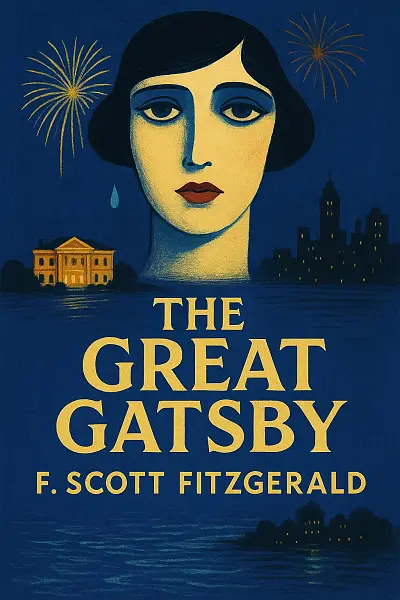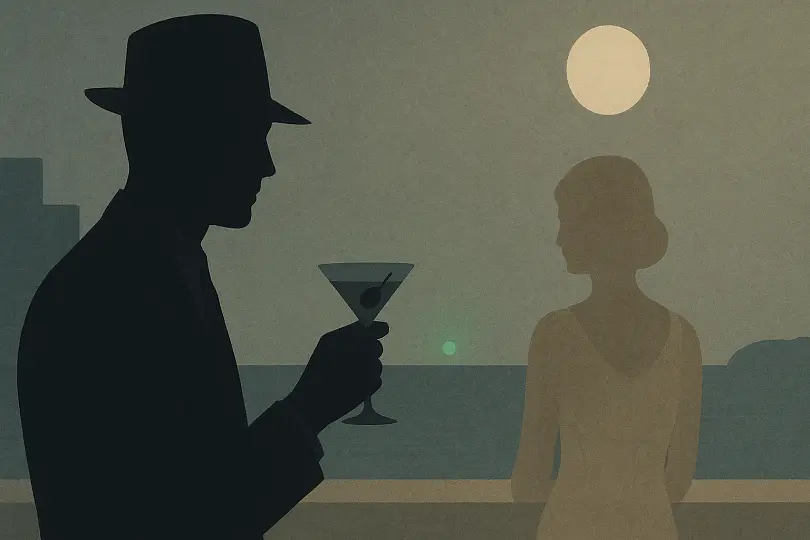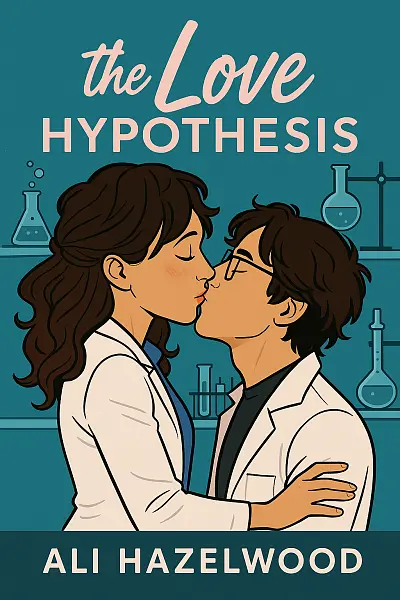
The Great Gatsby
Nick Carraway arrives in roaring 1920s Long Island, hoping for a fresh start among the rich and restless. Glitzy mansions and endless parties mask quiet yearning—especially for Nick’s enigmatic neighbor, Jay Gatsby. Everything shifts when Gatsby’s lavish lifestyle is revealed as an elaborate attempt to reclaim his lost love, Daisy Buchanan.
As Gatsby draws Nick into a world of romance, illusion, and ambition, the stakes become heartbreakingly personal: Will Gatsby win Daisy back, or will old money and old wounds keep them apart?
Fitzgerald’s lush, bittersweet narration perfectly captures the glittering, doomed vibe of the era—full of hope, heartbreak, and haunting questions about the American Dream.
"We chase shining illusions across the darkness, only to find ourselves lost in the glow of dreams we can never hold."
Let's Break This Down
The Author's Voice
Atmosphere
- Glamorous with an undertone of melancholy
- Think jazz-age parties sparkling with champagne and laughter, but always edged with longing and regret
- You’ll feel swept up in opulence—shimmering lights, roaring twenties energy, and a sense of impossible yearning hovering in the night air
- The world is lush, intoxicating, and just a little bit hollow underneath the surface
Prose Style
- Fitzgerald’s writing is lyrical, vivid, and sharply observant—you’ll stumble across sentences you’ll want to reread for their sheer beauty
- Expect poetic metaphors, lush imagery, and dialogue that feels both authentic and slightly stylized
- Narration through Nick Carraway is intimate and slightly removed, giving you just enough distance to see everyone’s flaws
- The language balances elegance and clarity—never purple, but sometimes just a touch ornate
Pacing
- The story flows with an unhurried, measured rhythm
- Early chapters savor details, allowing you to soak up the world before momentum quietly builds
- Don’t expect whiplash twists—it’s more like a slow unraveling, with revelations and emotional payoffs carefully spaced
- Climax hits hard once it arrives, making the earlier restraint feel all the more impactful
Character Voice
- Narration is colored by Nick’s quiet wit and sometimes ambiguous judgments
- Dialogue pops with period slang and hidden meanings
- Everyone feels just a little bit enigmatic—personalities are revealed in layers, never laid bare immediately
- You’ll notice a continual tension between who people are and who they want to be
Mood & Tone
- Effervescent yet bittersweet—the mood shifts from dazzling and hopeful to mournful and cynical
- There’s a dreamlike quality to the scenes, like memories fading at the edges
- Expect undercurrents of disillusionment, envy, and longing tucked underneath sparkling conversations
Overall Feel
- Reading The Great Gatsby is like slipping into an extravagant party you’re not sure you belong at; dazzling, seductive, but tinged with a profound sense of loss
- It’s equal parts love letter to possibility and eulogy for shattered illusions
Key Moments
-
Gatsby’s legendary parties glittering with jazz, champagne, and secrets
-
Nick’s dreamy narration—equal parts nostalgia and biting social commentary
-
Daisy’s heartbreak crystallized in a single, trembling tear
-
“So we beat on, boats against the current…” —an unforgettable final line
-
Green light obsession: hope, longing, and the unreachable American Dream
-
Tom Buchanan’s brutal charm—privilege with a punch
-
A shattering roadside tragedy on a sultry summer night
Plot Summary
The Great Gatsby follows Nick Carraway as he moves to Long Island in the summer of 1922 and becomes neighbors with the enigmatic, wealthy Jay Gatsby. Gatsby, famed for his lavish parties, is revealed to be hopelessly in love with Daisy Buchanan—Nick’s cousin—who is married to the arrogant Tom Buchanan. Gatsby’s romantic pursuit leads to clandestine meetings with Daisy, culminating in a tangled web of deceit, jealousy, and reckless driving. When Gatsby and Daisy strike and kill Tom’s mistress, Myrtle, Gatsby takes the blame; ultimately, Myrtle’s husband, George, kills Gatsby and then himself. The novel ends with Nick disillusioned, reflecting on the era’s lost dreams and hollow pursuits.
Character Analysis
Jay Gatsby is both extraordinary and tragic, a self-made millionaire whose obsessive love for Daisy defines him, yet blinds him to reality; his persona is one of grandeur but also desperate hope. Daisy Buchanan is charming yet superficial, ultimately choosing security with Tom over genuine love, making her both sympathetic and infuriating. Tom Buchanan’s privilege and aggression drive much of the novel’s conflict, embodying entitlement and moral decay. Nick Carraway acts as the story’s narrator and a voice of reason, gradually becoming disenchanted by the East Coast’s empty glamour and recognizing his outsider status. Through these characters, Fitzgerald explores the futility of chasing illusions and the damaging effects of wealth and class.
Major Themes
The American Dream sits front and center, examined through Gatsby’s rise and fall: his belief that wealth and status can win back lost love ends in tragedy, illustrating the dream’s corruption. Appearance versus reality runs throughout, especially in Gatsby’s constructed identity and the dazzling parties masking emptiness. Social class is explored with biting clarity, as old money and new money characters clash, and outsiders like Nick observe the insular world of privilege. Finally, decay and disillusionment color the novel’s gorgeous surfaces—every sparkling moment hides disappointment, and the “green light” becomes a symbol of impossible longing.
Literary Techniques & Style
Fitzgerald’s prose is lush and lyrical, packed with vibrant imagery and metaphors—just think of the “valley of ashes” or the “green light.” The novel’s first-person narration by Nick Carraway filters events through a deeply personal, sometimes unreliable lens, layering subjectivity onto every scene. Symbolism is everywhere: Gatsby’s mansion, the eyes of Doctor T.J. Eckleburg, and the colors gold and green all reinforce key themes. The structure itself—a series of party scenes, confessionals, and flashbacks—mirrors the era’s fragmented, shifting morals, and keeps the narrative moving with a dreamlike pace.
Historical/Cultural Context
Set in the Roaring Twenties, the novel crackles with the energy, extravagance, and upheaval of post-World War I America, capturing the optimism and excess of the Jazz Age. The era’s Prohibition laws fuel Gatsby’s mysterious fortunes, while shifting gender roles, social mobility, and racial tensions provide a vivid backdrop. Fitzgerald, drawing from his own experiences, perfectly distills the spirit and contradictions of a society obsessed with wealth and reinvention.
Critical Significance & Impact
The Great Gatsby has grown to become an iconic American novel, acclaimed for its rich symbolism, vivid style, and timeless exploration of hope and disenchantment. While initially receiving mixed reviews, its reputation soared posthumously, influencing countless works and retaining immense cultural relevance. The novel’s incisive critique of the American Dream—and its dazzling yet damning portrait of 1920s America—make it a perennial favorite for students, authors, and casual readers alike.

Chasing lost dreams amid the glitter and shadows of the Jazz Age
What Readers Are Saying
Right for You If
Okay, here’s my take on who’s going to vibe with The Great Gatsby and who might want to toss it back on the shelf for now:
If you love books that…
- Dive deep into character quirks and messy relationships, you’re in luck—this one’s basically a master class in complex people not saying what they mean.
- Are all about drama, secrets, and parties, I mean, hello, Gatsby’s lavish soirées are legendary. If you’re into sparkling evenings and all the tension simmering underneath, you’ll get swept right in.
- Make you think about big themes like the American Dream, ambition, and how money messes with our heads, you’ll get those thought-provoking moments everyone’s always quoting.
- Enjoy sharp, beautiful writing, Fitzgerald’s sentences really paint a mood. If you geek out over clever language, this is total candy.
But honestly, you might want to skip it if…
- You need fast-paced action or non-stop plot twists. Gatsby’s more of a slow burn—it’s less car chases, more staring out windows thinking about life.
- You want stories with purely likable characters. Most of the crew here? Gorgeous disasters. It’s not about finding a hero—everyone’s a little flawed, a little lost.
- You’re hoping for a super straightforward story. There’s symbolism, unreliable narrators, and lots of subtle hints—a dream for some, but maybe frustrating if you just want the facts, plain and simple.
In a nutshell: If you’re a fan of literary fiction, historical drama, intricate characters, or the whole “rich people being messy and miserable” vibe, you’ll probably get a lot out of this. But if you want epic adventure, clear-cut morals, or non-stop action, Gatsby might feel more like homework than fun. Totally depends on your mood—so trust your gut!
What You're Getting Into
Get ready to be swept into the lavish world of 1920s New York, where the mysterious millionaire Jay Gatsby throws dazzling parties that everyone wants to attend but no one really understands.
Through the eyes of his neighbor Nick Carraway, you'll dive deep into an intoxicating scene of wealth, longing, and restless ambition—where old money and new dreams collide and friendships mask hidden agendas.
Underneath the glitz, this story pulses with romantic yearning, sharp social commentary, and an irresistible air of intrigue that'll keep you turning pages late into the night.
Characters You'll Meet
-
Jay Gatsby: The mysterious millionaire whose lavish parties and longing for Daisy Buchanan drive the novel’s core. His relentless pursuit of the American Dream underpins both the plot and its tragic arc.
-
Nick Carraway: The everyman narrator who moves to West Egg and becomes entangled in Gatsby’s world. His observant, reflective nature makes him both a participant in and commentator on the story.
-
Daisy Buchanan: Gatsby’s elusive love interest, married to Tom. Daisy’s charm, indecision, and the disillusionment she represents are central to the novel’s major themes.
-
Tom Buchanan: Daisy’s wealthy, arrogant husband. Tom’s entitlement, aggression, and infidelity set major conflicts in motion and underscore issues of class and privilege.
-
Jordan Baker: A competitive golfer and Daisy’s friend who becomes romantically involved with Nick. Jordan’s cynicism and detachment offer a modern, critical perspective on 1920s social norms.
More Like This
If you found yourself swept away by the star-crossed lovers and lavish parties of Romeo and Juliet, you'll instantly recognize a similar pull in The Great Gatsby—there’s an intoxicating mix of passion, miscommunication, and the aching distance between what’s desired and what’s truly attainable. Just like Fitzgerald, Shakespeare weaves characters who are desperate for love in a world stacked against them.
For those captivated by the sharp, biting social commentary found in Jane Austen’s Pride and Prejudice, Gatsby’s glittering world promises another deep dive into class dynamics and the illusions money can craft. Both novels use romance as a window into society’s ambitions and self-deceptions, inviting readers to look just beneath the surface to uncover the real drama.
On the screen, anyone who was hooked by the mood and mystique of HBO’s Boardwalk Empire will feel right at home within Gatsby’s Jazz Age extravagance. Both evoke the roaring 1920s with their smoky speakeasies, dangerous liaisons, and a pervasive sense of longing. That hypnotic blend of glamour and melancholy, where every sparkling party hides deeper secrets, makes for an irresistible comparison.
Critic's Corner
If American dreams are built on longing and illusion, what happens when you chase a vision destined to dissolve at dawn?
The Great Gatsby doesn’t just pose this question—it dances on the knife-edge between hope and heartbreak, asking readers to confront the shimmering mirages beneath our collective pursuits.
Fitzgerald’s craft gleams on every page. His prose is precise, intoxicatingly lyrical, and effortlessly evocative—think crystalline sentences that feel both fragile and sharp as glass. By filtering the story through Nick Carraway’s watchful gaze, Fitzgerald weaves a narrative that’s both intimate and unreliable, allowing mystery to thicken around Gatsby himself. The language is lush with vivid imagery, transforming parties into fever dreams and longing into poetry (“the orgastic future that year by year recedes before us…”). Dialogue sparkles with wit and undercurrent; even minor characters spring to life with a single detail or gesture. What sets this novel apart is not overt action, but the slow, almost hypnotic build of mood and meaning. At times, however, this subtlety borders on emotional distance, keeping readers at arm’s length just when the story most aches for intimacy.
Underneath the glitter, the novel unearths themes that feel as urgent now as ever. The roiling tension between idealism and reality pulses beneath Gatsby’s every move—and the novel ruthlessly interrogates whether America’s promise holds true for everyone, or only for those already inside the gate. Fitzgerald skewers the moral emptiness of the “new rich,” exposing the rot at the root of their shimmering lives. Yet he also carves out genuine longing, examining the hazards of nostalgia: the impossibility of recapturing lost time and the danger of constructing ourselves around illusions. Amid the party lights and champagne, questions of class, identity, and privilege shimmer. In an era obsessed with reinvention, Gatsby’s quest feels heartbreakingly relevant: What price do we pay for imagining ourselves anew, and can we ever truly transcend our origins?
Within the tradition of American literature, The Great Gatsby stands as a radiant outlier. Fitzgerald distilled the Roaring Twenties into a work that feels both timeless and utterly of its moment—think Wharton’s social nuance meets Hemingway’s spare clarity, but spun through the jazz-age kaleidoscope of longing and ruin. Among Fitzgerald’s own works, this novel is his sharpest, most elegantly constructed achievement. Its brevity is deceptive: beneath its compact structure lies a depth that rewards return visits.
-
Strengths:
- Unmatched prose style
- Nuanced moral complexity
- Timeless exploration of the American psyche
-
Weaknesses:
- Emotional detachment at critical moments
- Some side characters verge on archetype
Final verdict:
The Great Gatsby endures not just because it captures an era, but because it exposes the restless, yearning heart that beats beneath every age. For readers old and new, its brilliance remains undiminished—irresistibly tragic, haunting, and true.
Community Thoughts
I CAN'T STOP THINKING ABOUT THAT GREEN LIGHT across the bay. It’s like every time I reach for something in my own life, Gatsby’s endless hope haunts me. Fitzgerald made longing feel like a curse.
nick carraway just lingered in my brain like cold fog, watching everything but never really doing anything, and somehow that was the creepiest part of all. couldn't sleep after finishing.
I was absolutely not ready for Gatsby staring at that green light like it held the universe. That scene messed with my head for days. Why did it feel like he was seeing something I’d missed in my own life?
i still can’t get over how gatsby just stood staring across the bay at that green light night after night. that image haunted me, made me question what i keep chasing that’s just out of reach.
I was up till 3 a.m. thinking about Gatsby staring at that green light like it had all the answers. Why did it hit so hard? Now every traffic signal makes me sad.
Leave Your Review
Local Take
Why It Matters
The Great Gatsby strikes a chord with readers here, especially when you draw parallels between Gatsby’s pursuit of the American Dream and periods of rapid economic change—think Japan’s post-war boom, Korea’s Miracle on the Han River, or modern China’s urban transformation. The book’s exploration of class divisions, the illusion of meritocracy, and the cost of relentless ambition feels super relevant in societies wrestling with wealth gaps and social mobility.
-
Cultural values like group harmony and modesty often clash with Gatsby’s flamboyant individualism and showy parties. The obsession with appearances in Gatsby’s world might remind locals of face culture, yet his disregard for tradition and roots is a stark contrast.
-
Plot twists like Gatsby’s tragic end hit differently, especially where filial piety & family honor remain strong—it’s unsettling to see someone so socially isolated.
-
Local literary traditions favor subtlety and emotional restraint—Gatsby’s intense romanticism and social critique challenge that norm, making his longing for Daisy both fascinating and foreign!
Food for Thought
Controversies Surrounding The Great Gatsby:
- The Great Gatsby has faced criticism for its portrayal of gender roles, class privilege, and subtle racism—notably in its depiction of Meyer Wolfsheim and some attitudes towards women and minorities.
- In recent years, debates often center around whether Fitzgerald’s critique of the American Dream is effective or if the novel inadvertently glamorizes the very excess and moral decay it sets out to expose.
Like what you see? Share it with other readers







